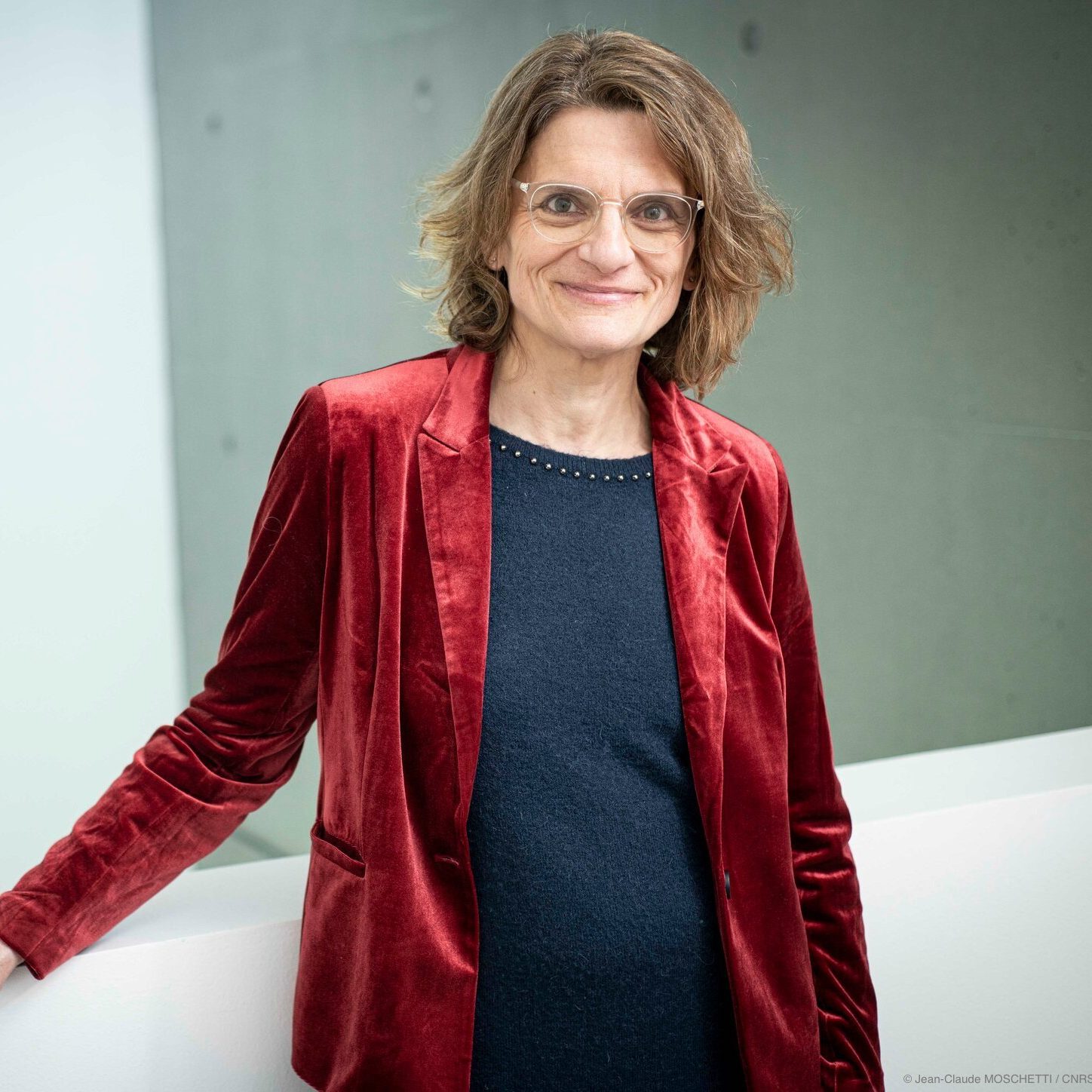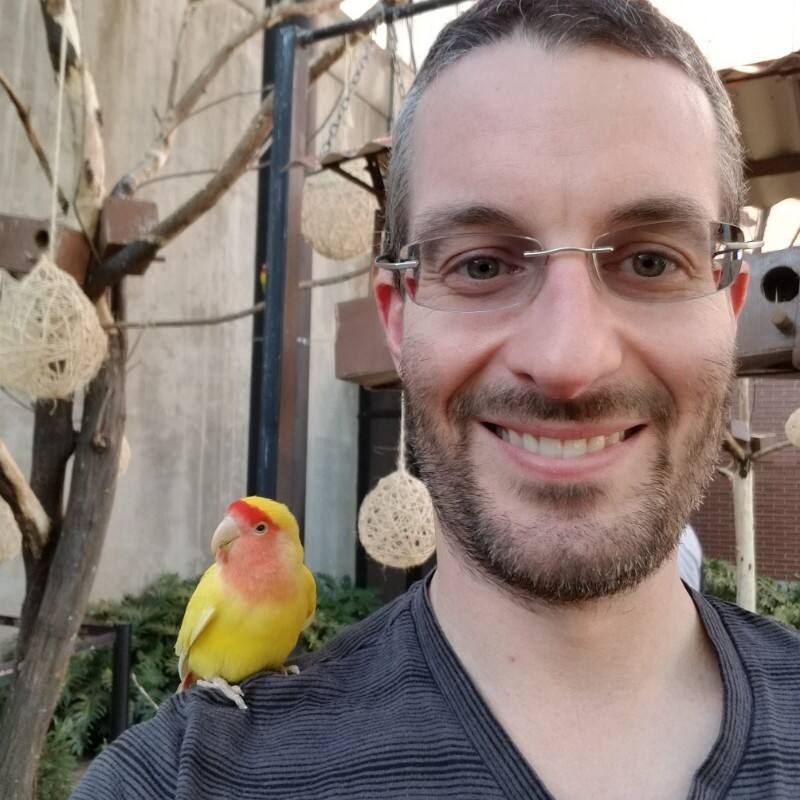| Tuesday, July 8 — Workshop Day | ||
|---|---|---|
| Time | Function | Location |
| 8:00 AM – 9:00 AM | Registration | U – Residentie, VUB Campus |
| 9:00 AM – 10:00 AM | Workshop Day Session | U – Residentie, VUB Campus |
| 10:00 AM – 10:30 AM | Coffee Break | U – Residentie, VUB Campus |
| 10:30 AM – 12:00 PM | Workshop Day Session | U – Residentie, VUB Campus |
| 12:00 PM – 1:30 PM | Lunch Break | U – Residentie, VUB Campus |
| 1:30 PM – 3:30 PM | Workshop Day Session | U – Residentie, VUB Campus |
| 3:30 PM – 4:00 PM | Coffee Break | U – Residentie, VUB Campus |
| 4:00 PM – 5:30 PM | Workshop Day Session | U – Residentie, VUB Campus |
| 5:30 PM – 7:30 PM | First-Timer Reception | U – Residentie, VUB Campus |
| Wednesday, July 9 — Main Conference Day 1 | ||
|---|---|---|
| Time | Function | Location |
| 8:00 AM – 8:45 AM | Registration | Foyer Vista, Floor 27, The Hotel |
| 8:45 AM – 9:00 AM | Welcome & Opening Remarks | Vista, Floor 27, The Hotel |
| 9:00 AM – 10:00 AM | Keynote – Sandrine Blazy (University of Rennes) | Vista, Floor 27, The Hotel |
| 10:00 AM – 10:30 AM | Coffee Break | Foyer Vista, Floor 27, The Hotel |
| 10:30 AM – 12:00 PM | Session 1: Real-time Software | Vista, Floor 27, The Hotel |
| 12:00 PM – 1:30 PM | Lunch Break | Foyer Vista, Floor 27, The Hotel |
| 1:30 PM – 3:30 PM | Session 2: Robotics and Control | Vista, Floor 27, The Hotel |
| 3:30 PM – 4:00 PM | Coffee Break | Foyer Vista, Floor 27, The Hotel |
| 4:00 PM – 4:40 PM | Premium Participant Talks | Vista, Floor 27, The Hotel |
| 4:40 PM – 5:30 PM | Real-time Pitches | Vista, Floor 27, The Hotel |
| 5:30 PM – 7:30 PM | Posters & Demos Session and Reception | Foyer Vista, Floor 27, The Hotel |
| Thursday, July 10 — Main Conference Day 2 | ||
|---|---|---|
| Time | Function | Location |
| 8:00 AM – 8:30 AM | Registration | Foyer Vista, Floor 27, The Hotel |
| 8:30 AM – 9:30 AM | Keynote – Allan Graves (Oracle) | Vista, Floor 27, The Hotel |
| 9:30 AM – 10:00 AM | Coffee Break | Foyer Vista, Floor 27, The Hotel |
| 10:00 AM – 12:00 PM | Session 3: Hardware Design and Analysis | Vista, Floor 27, The Hotel |
| 12:00 PM – 1:30 PM | Lunch Break | Foyer Vista, Floor 27, The Hotel |
| 1:30 PM – 2:45 PM | Industrial Challenge | Vista, Floor 27, The Hotel |
| 2:45 PM – 3:30 PM | Guided Visit: Gathering and groups formation | Departing from The Hotel Choco-Story Brussels |
| 3:30 PM – 4:00 PM | Guided Visit: first two groups leave | Departing from The Hotel Choco-Story Brussels |
| 4:00 PM – 4:30 PM | Guided Visit: next 2 groups leave | Departing from The Hotel Choco-Story Brussels |
| 4:30 PM – 5:00 PM | Guided Visit: last group leaves | Departing from The Hotel Choco-Story Brussels |
| 5:00 PM – 6:30 PM | Guided Visit and Departure for Dinner Venue | Departing from Choco-Story Brussels |
| 6:30 PM – late evening | Arrival at Dinner Venue and Banquet | Le Conteur |
| Friday, July 11 — Main Conference Day 3 | ||
|---|---|---|
| Time | Function | Location |
| 8:30 AM – 10:00 AM | Session 4: Data Analysis and Machine Learning | Vista, Floor 27, The Hotel |
| 10:00 AM – 10:30 AM | Coffee Break | Foyer Vista, Floor 27, The Hotel |
| 10:30 AM – 12:30 PM | Session 5: Real-time Scheduling | Vista, Floor 27, The Hotel |
| 12:30 PM – 2:00 PM | Lunch Break | Foyer Vista, Floor 27, The Hotel |
| 2:00 PM – 3:30 PM | Session 6: Outstanding Papers | Vista, Floor 27, The Hotel |
| 3:30 PM – 4:00 PM | Coffee Break | Foyer Vista, Floor 27, The Hotel |
| 4:00 PM – 5:00 PM | Concluding Remarks and Awards | Vista, Floor 27, The Hotel |
Keynotes
Sandrine Blazy, University of Rennes
Trusting Compilers and More: Mechanized Semantics to the Rescue
Wednesday, July 9, 9:00 AM – 10:00 AM
Session Chair: Rodolfo Pellizzoni, University of Waterloo, Canada, rpellizz@uwaterloo.ca
A formally verified compiler ensures that compilation does not introduce any bugs in programs. In the CompCert C compiler, this correctness property requires reasoning about realistic languages by using a semantic framework. This talk explains how this framework has been effectively used to turn CompCert from a prototype in a lab into a real-world compiler. More generally, this approach paves the way to the verification of software tools involved in software production and verification.
Bio – Sandrine Blazy is professor at the University of Rennes and deputy director of the IRISA CNRS laboratory. Her research interests include verified compilation with the CompCert C compiler, formal semantics, deductive verification, static analysis and software security. CompCert has won several awards, including the ACM software system award (2021), the ACM SIGPLAN Programming Languages Software Award (2022). Sandrine Blazy received in 2023 the CNRS silver medal.

Allan Graves, Oracle
Oracle Exadata: Designing the World’s Largest Embedded System
Thursday, July 10, 8:30 AM – 9:30 AM
Session Chair: TBD
Oracle Exadata is a specialized computing and storage platform designed to optimize Oracle Database real-time performance. It combines hardware and software to provide high-performance, low-cost, and highly available database solutions. Exadata achieves this by moving database processing and algorithms into storage and networking, bypassing traditional server limitations. This talk will cover recent efforts in the design and development of Oracle Exadata, which can be considered the world’s largest embedded system. It will cover our everyday challenges and work to provide the best system for every customer’s needs at this scale of data processing.
Bio – Allan Graves began his technology journey in the 1980s with hobby computers like the Z80. After earning a degree in Computer Engineering, he worked at Compaq/HP on Tru64 Unix and the DEC Alpha chip. He later joined Oracle, contributing to products like Oracle ACFS, clustering solutions, and kernel development across multiple operating systems. His passion has remained constant: creating great technology to solve fascinating problems.

Wednesday, July 9
Session 1: Real-time Software
10:30 AM – 12:00 PM
Session Chair: Kunal Agrawal, Washington University in St Louis, USA, kunal@wustl.edu
- Enabling Containerisation of Distributed Applications with Real-Time Constraints
Nasim Samimi (Eindhoven University of Technology, Netherlands), Luca Abeni (Scuola Superiore Sant’Anna, Italy), Daniel Casini (Scuola Superiore Sant’Anna, Italy), Mauro Marinoni (Scuola Superiore Sant’Anna, Italy), Twan Basten (Eindhoven University of Technology, Netherlands), Mitra Nasri (Eindhoven University of Technology, Netherlands), Marc Geilen (Eindhoven University of Technology, Netherlands), Alessandro Biondi (Scuola Superiore Sant’Anna, Italy) - Multi-Objective Memory Bandwidth Regulation and Cache Partitioning for Multicore Real-Time Systems
Binqi Sun (Technical University of Munich, Germany), Zhihang Wei (Technical University of Munich, Germany), Andrea Bastoni (Technical University of Munich, Germany), Debayan Roy (Technical University of Munich, Germany), Mirco Theile (Technical University of Munich, Germany), Tomasz Kloda (LAAS-CNRS, France), Rodolfo Pellizzoni (University of Waterloo, Canada), Marco Caccamo (Technical University of Munich, Germany) - Timing analysis and optimization of ROS 2 applications written in asynchronous Rust
Martin Škoudlil (Czech Technical University in Prague, Czech Republic), Michal Sojka (Czech Technical University in Prague, Czech Republic)
Session 2: Robotics and Control
1:30 PM – 3:30 PM
Session Chair: Michal Sojka, Czech Technical University in Prague, Czech Republic, michal.sojka@cvut.cz
- A Multi-UAV Router and Scheduler for Executing Spatially Scattered Real-time Tasks
Sreyashi Mukherjee (Indian Institute of Technology, India), Sachin Yadav (Indian Institute of Technology, India), Yedla Anil Kumar (Indian Institute of Technology, India), Arnab Sarkar (Indian Institute of Technology, India) - RESCUE: Multi-Robot Planning under Resource Uncertainty and Objective Criticality
Franco Cordeiro (Télécom Paris, Institut Polytechnique de Paris, France), Samuel Tardieu (Télécom Paris, Institut Polytechnique de Paris, France), Laurent Pautet (Télécom Paris, Institut Polytechnique de Paris, France) - Sensor Fusion Desynchronization Attacks
Andreas Finkenzeller (Technical University of Munich, Germany), Andrew Roberts (Tallinn University of Technology, Estonia), Mauro Bellone (Tallinn University of Technology, Estonia), Olaf Maennel (The University of Adelaide, Australia), Mohammad Hamad (Technical University of Munich, Germany), Sebastian Steinhorst (Technical University of Munich, Germany) - Period Assignment for Real-time Cascade Control Tasks under Stability and Schedulability Constraints
Ismail Hawila (StatInf / INRIA, France), Liliana Cucu-Grosjean (INRIA, France), Slim Ben Amor (StatInf, France)
Thursday, July 10
Session 3: Hardware Design and Analysis
10:00 AM – 12:00 PM
Session Chair: Francisco Cazorla, Barcelona Supercomputing Center (BSC), Spain, francisco.cazorla@bsc.es
- On Real-Time Guarantees of Intel SGX and TDX
Peterson Yuhala (University of Neuchatel, Switzerland), Christian Göttel (ABB Corporate Research, Swizerland), Jämes Ménétrey (University of Neuchâtel, Swizerland), Valerio Schiavoni (University of Neuchatel, Swizerland), David Kozhaya (ABB Corporate Research, Swizerland), Pascal Felber (University of Neuchatel, Switzerland) - DAMA: A Dual Arbitration Mechanism for Mixed-Criticality Applications
Wafic Lawand (University of Waterloo, Canada), Rodolfo Pellizzoni (University of Waterloo, Canada) - LoRaHART: Hardware-Aware Real-Time Scheduling for LoRa
Soumya Ranjan Sahoo (Nanyang Technological University, Singapore), Amalinda Gamage (National University of Singapore, Singapore), Niraj Kumar (IIT Goa, India), Arvind Easwaran (Nanyang Technological University, Singapore) - Bounding the WCET of a GPU thread block with a multi-phase representation of warps execution
Louison Jeanmougin (Université de Toulouse, France), Thomas Carle (Université de Toulouse, France), Christine Rochange (Université de Toulouse, France)
Friday, July 11
Session 4: Data Analysis and Machine Learning
8:30 AM – 10:00 AM
Session Chair: Isabelle Puaut, Universite de Rennes – IRISA, France, isabelle.puaut@irisa.fr
- Faster Classification of Time-Series Input Streams
Kunal Agrawal (Washington University in St. Louis, USA), Sanjoy Baruah (Washington University in St. Louis, USA), Zhishan Guo (NC State University, USA), Jing Li (NJIT, USA), Federico Reghenzani (Politecnico di Milano, Italy), Kecheng Yang (Texas State University, USA), Jinhao Zhao (Washington University in St. Louis, USA) - Real-Time System Evaluation Techniques: A Systematic Mapping Study
Tilmann Unte (University of Augsburg Embedded Systems Chair, Germany), Sebastian Altmeyer (University of Augsburg Embedded Systems Chair, Germany) - Task-to-Processor Assignment for Real-Time Mixed-Critical Networked Systems Using Inductive Logic Programming
Marcus Gualtieri (Robert Bosch LLC, USA), Christian Juette (Robert Bosch LLC, Germany), Dakshina Dasari (Robert Bosch GmbH, Germany)
Session 5: Real-time Scheduling
10:30 AM – 12:30 PM
Session Chair: Zhishan Guo, North Carolina State University, USA, zguo32@ncsu.edu
- Analysis of EDF for Real-Time Multiprocessor Systems with Resource Sharing
Kunal Agrawal (Washington University in St. Louis, USA), Sanjoy Baruah (Washington University in St. Louis, USA), Jeremy Fineman (Georgetown University, USA), Alberto Marchetti-Spaccamela (University of Rome, Italy), Jinhao Zhao (Washington University in St. Louis, USA) - Formal Comparison of Outgoing Event Streams
Victor Pollex (INCHRON AG, Germany), Frank Slomka (Ulm University, Germany) - Theoretical Foundations of Utility Accrual for Real-Time Systems
Jian-Jia Chen (TU Dortmund University, Germany), Junjie Shi (TU Dortmund University, Germany), Mario Guenzel (TU Dortmund, Germany), Georg von der Brüggen (TU Dortmund, Germany), Kuan-Hsun Chen (University of Twente, Netherlands), Peter Bella (TU Dortmund University, Germany) - Per-Flow Performance Guarantees in Networked Systems with Complex Feedback Structures
Anja Hamscher (RPTU Kaiserslautern-Landau, Germany), Lukas Wildberger (RPTU Kaiserslautern-Landau, Germany), Jens Schmitt (RPTU Kaiserslautern-Landau, Germany)
Session 6: Outstanding Papers
2:00 PM – 3:30 PM
Session Chair: Daniel Casini, Scuola Superiore Sant’Anna, Italy, daniel.casini@santannapisa.it
- Revisiting Timing Anomalies in Predictable In-order Pipelines
Lilia Rouizi (Université Paris-Saclay, CEA List, France), Mihail Asavoae (Université Paris-Saclay, CEA List, France), Benjamin Binder (Independent researcher, France), Lionel Rieg (Grenoble INP – UGA, Université Grenoble Alpes, Verimag, France), Florian Brandner (LTCI, Télécom Paris, Institut Polytechnique de Paris, France) - Detecting Low-Density Mixtures in High-Quantile
Tails for pWCET Estimation
Blau Manau (Barcelona Supercomputing Center, Spain), Sergi Vilardell (Barcelona Supercomputing Center, Spain), Isabel Serra (Autonomous University of Barcelona, Spain), Enrico Mezzetti (Barcelona Supercomputing Center, Spain), Jaume Abella (Barcelona Supercomputing Center, Spain), Francisco J. Cazorla (Barcelona Supercomputing Center, Spain) - Hardware Compute Partitioning on NVIDIA GPUs for Composable Systems
Joshua Bakita (University of North Carolina at Chapel Hill, USA), James H. Anderson (University of North Carolina at Chapel Hill, USA)

